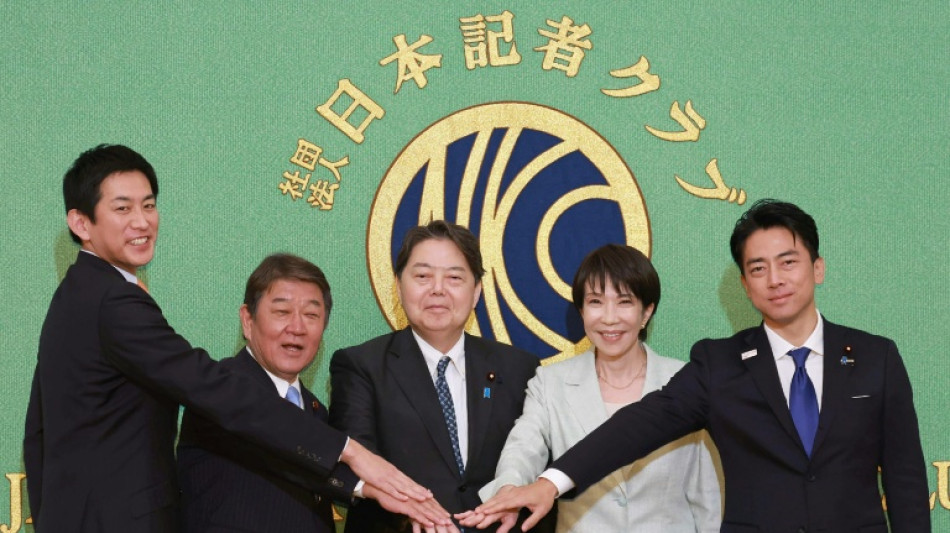
RBGPF
0.0000

China hawk Sanae Takaichi and the youthful Shinjiro Koizumi went into a runoff vote Saturday to become the head of Japan's ruling party, charged with reviving its flagging fortunes as a new anti-immigration grouping snaps at its heels.
The eventual winner will almost certainly be approved by parliament as Japan's fifth prime minister in as many years, a step that local media say could come the week of October 13.
Takaichi, 64, would be Japan's first woman premier, and the telegenic but potentially out-of-his-depth Koizumi, 44, the son of a former premier, its youngest in the modern era.
The two went into the run off to head the Liberal Democratic Party (LDP) after the moderate Yoshimasa Hayashi, dubbed "Mr. 119" after Japan's emergency phone number, was knocked out along with two other candidates.
He or she will face a host of complex issues including an ageing population, geopolitical upheaval, a faltering economy and growing unease about immigration.
First, however, they will have to ensure that the LDP, which has governed almost non-stop since 1955, can rally voters again.
"The LDP must regain trust, and an overhaul is needed for us to start afresh," Koizumi said in the campaign, calling the state of the party a "crisis".
- Immigrant 'invasion' -
Outgoing premier Shigeru Ishiba took the reins last year but his LDP-led coalition lost its majority in both houses of parliament and he threw in the towel.
One party on the up is Sanseito, which echoes other populist movements in calling immigration a "silent invasion" and blames newcomers for a host of ills.
Takaichi and Koizumi have sought to appeal to voters attracted by Sanseito's messaging about foreigners, whether immigrants or the throngs of tourists.
Japan should "reconsider policies that allow in people with completely different cultures and backgrounds", said Takaichi.
Koizumi added: "Illegal employment of foreigners and the worsening of public safety are leading to anxiety among local residents."
Such alarmism from mainstream politicians is rare in Japan, where people born abroad make up just three percent of the population.
"I think tolerance in society towards foreigners is weakening," pensioner Kimiko Tamura, 66, told AFP in Kawaguchi, one of Japan's most multicultural cities.
Still, 33-year-old Nguyen Thu Huong, who arrived from Vietnam 14 years ago, said "differences in culture are difficult to learn... but Japan is a nice place to live".
- Abenomics 2.0 -
On the economy, Takaichi has in the past backed aggressive monetary easing and big fiscal spending, echoing her mentor, former premier Shinzo Abe.
But she tempered her stance on the campaign trail, and the regular visitor to the Yasukuni war shrine has also sounded more moderate on China.
Coming from the traditionalist wing of the LDP, celebrations that finally a woman is leading Japan may soon turn to disappointment.
Takaichi "has no interest in women's rights or gender equality policies," Yuki Tsuji, a professor specialising in politics and gender at Tokai University, told AFP.
Koizumi, son of former premier Junichiro, would be Japan's youngest prime minister since 1885 and represent a generational change for the LDP.
But experts worry that for all his charisma and modern image -- he took paternity leave and surfs -- Koizumi lacks depth and could become a liability with voters.
Koizumi is "good at displaying how reform-minded he is, but he's not very good at debate, so I wonder how long his popularity will be maintained after parliament opens," Sadafumi Kawato, professor emeritus of the University of Tokyo, told AFP.
K.Dudek--TPP